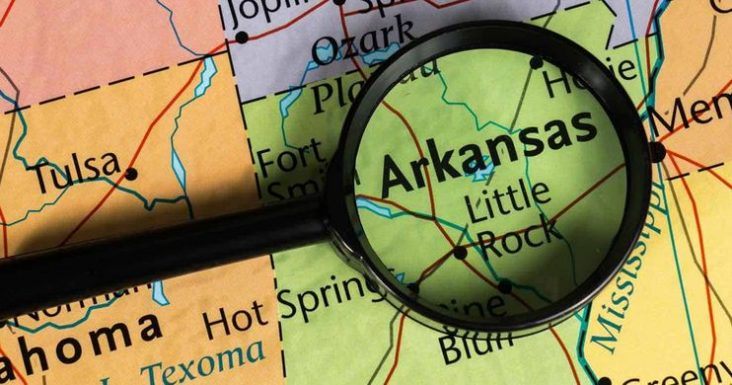Health officials: ‘Community spread’ of coronavirus will happen in Arkansas
by March 15, 2020 10:04 am 4,781 views

Despite high hopes and best wishes, it is almost inevitable that Arkansas will experience a widening of the COVID-19 crisis within the state’s borders.
Dr. Jennifer Dillaha, infectious disease specialist at the Arkansas Department of Health, said that while Arkansas is dealing with isolated cases at this juncture, larger-scale testing and late efforts to “social distance” will still lead to an increase in the number of coronavirus cases in state.
“I think, in the very near future, we’ll start seeing spread in our communities. We’re very happy that testing for the virus that causes this disease, the disease is called COVID-19, so the testing’s becoming more widespread, available to clinics and hospitals through the commercial lab companies. And as that testing gets more available, if the virus starts circulating in the community, we’ll be able to identify that more quickly than we could when we had to send all of our tests to the CDC [Centers for Disease Control and Prevention],” Dillaha said in a Talk Business & Politics interview.
“There are things that we can do to prepare, and some communities are looking at that. Businesses need a plan for a continuity of operations. There’s options for people teleworking or telecommuting. Some of the universities are beginning to set up classes that were in-person now to be done online,” she said.
On Saturday, the state received confirmation from the CDC that all 12 of its “presumptive positive” cases were indeed positive. On Sunday, the number had risen to 16. Eleven of the first 12 coronavirus patients can trace their origins of infection; however, one case is unknown how it was contracted. This is how “community spread” happens, where the virus is passed among citizens by random interaction.
Dillaha says it will be extremely challenging to prevent the disease from spreading further.
“You can imagine how difficult it would be to keep the flu out [of a community], and this spreads like the flu. It spreads through respiratory droplets. People don’t have to be very sick to spread those droplets. And sometimes people don’t know they have it. They’re not doing it on purpose,” she said.
“I think one of the challenges is going to be the people who know they have it, they need to be isolated either at home if they’re not sick enough to be in the hospital, and then their families need to be quarantined. This is going to be a hardship for many people. Schools may lose personnel, and so they may choose to close. There’s lots of considerations,” Dillaha said.
Dr. Chad Rodgers, chief medical officer at the Arkansas Foundation for Medical Care and a practicing pediatrician, is on the front lines of seeing patients who could be carrying the virus. He said that he initially thought hype surrounding COVID-19 was overdone, but that quickly changed.
“Initially, I thought this was kind of overblown, just personally, or maybe I just didn’t want to believe that this was such an issue,” Rodgers said. “But then you look at organizations like the American Academy of Pediatrics, the World Health Organization, the CDC, and what we have learned in other countries about the disease and you really start to take notice and start to take things seriously.”
Rodgers said while most children are not as vulnerable as seniors, it is still important to keep kids from being carriers of the disease.
“As far as school closings, what I’m hearing from a lot of parents is, ‘Why are we closing the schools? Kids don’t get very sick.’ But kids are the big transmitters of the disease. Even though they don’t have the burden or they don’t get as sick, they can potentially get really sick, but it’s much less likely compared to an older person. They are the ones who carry and transmit the virus,” he said.
Dillaha said this is the biggest public health crisis she’s faced in her career. Despite skepticism from some members of the public, she said that it will take everyone working hard to prevent the disease from spreading, even with the inconveniences that may come in the short run.
“I don’t believe we are overreacting. This is now a pandemic and it’s a new virus that hasn’t been seen in humans before so we don’t have acquired immunity for it, we don’t have an evidence-based treatment, and we don’t have a vaccine yet,” she said. “And we know this virus is a little bit like the flu, but it’s actually more deadly than the flu. So, we need to get ready and prevent the spread, slow it down as much as possible, so those efforts to slow it down are going to be helpful.”
Dillaha added, “This is going to be disruptive of our usual lives in Arkansas, but we’re all in the same boat and we all need to be rowing in the same direction.”
You can watch Dillaha’s and Rodgers’ full interview in the video below.
